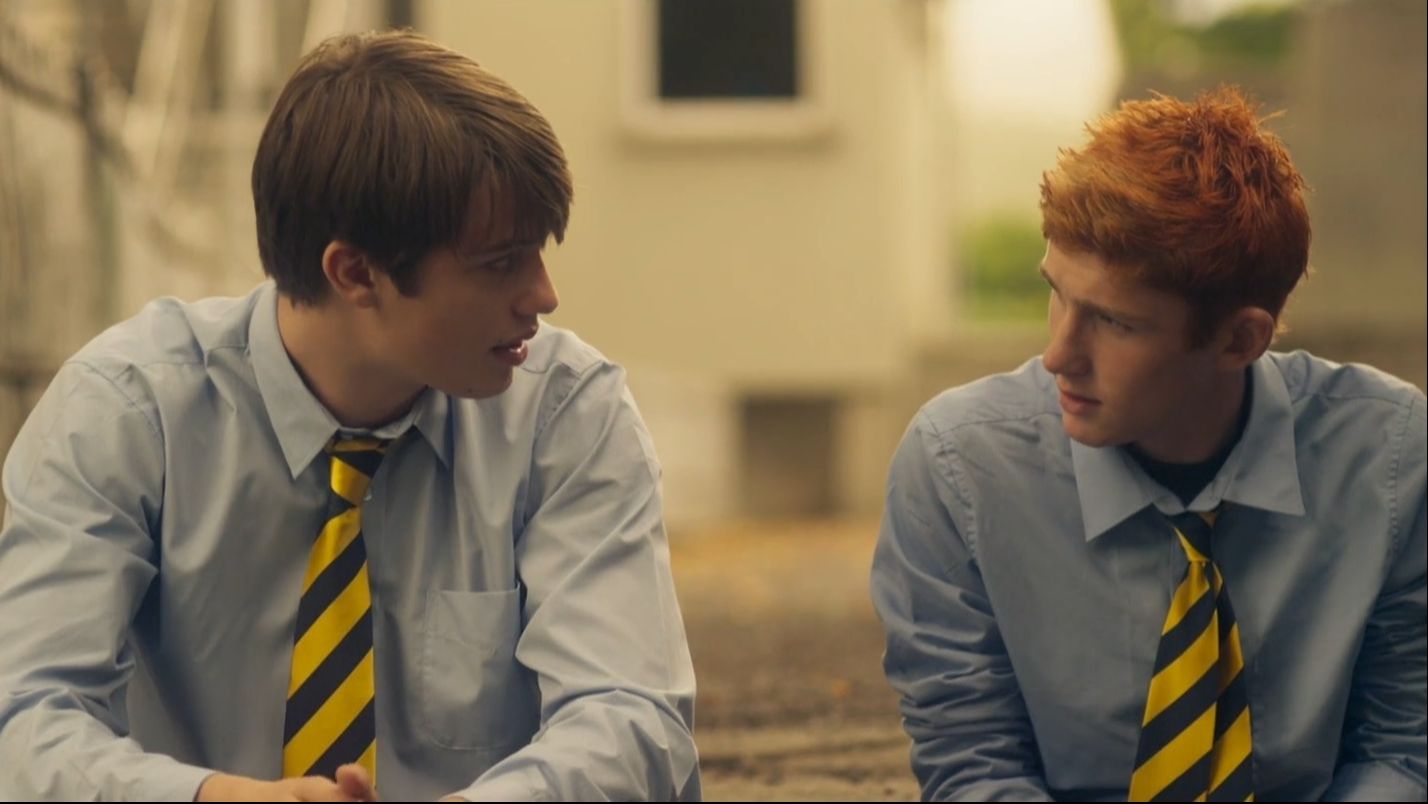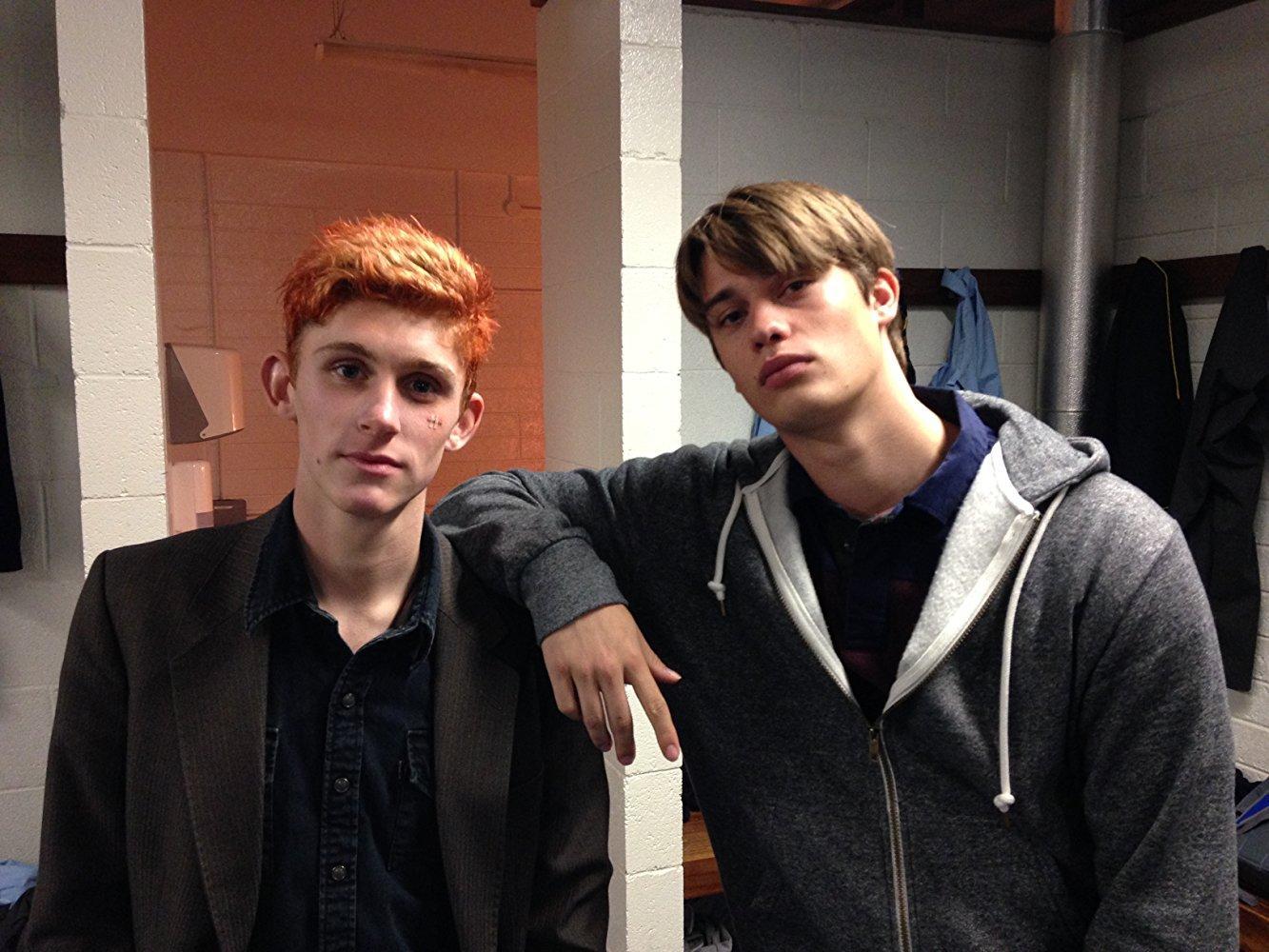Handsome Devil is an Irish coming-of-age drama directed by John Butler. The film follows the story of Ned Roche, a music-loving, introverted teenager who is sent to an all-boys boarding school in Ireland that heavily prioritizes rugby. With his dyed red hair and an open distaste for sports, Ned becomes an outcast, facing constant bullying from his classmates. To make things worse, he is assigned a new roommate, Conor Masters, a talented rugby player with a reputation as the school’s rising star. At first, Ned assumes Conor is just another jock who will treat him like everyone else, but as they spend time together, a surprising friendship forms. Conor, despite being popular and athletic, harbors his own insecurities and struggles with the expectations placed on him. As their friendship deepens, they find solace in each other, challenging the rigid culture of their school and the pressures of masculinity.
Their growing bond, however, is met with skepticism and resistance from those around them. The school’s rugby coach, Pascal, sees Conor’s friendship with Ned as a distraction from his athletic career, subtly reinforcing the toxic, hyper-masculine environment that dominates the school. Meanwhile, Ned continues to be targeted by his classmates, particularly a bully named Weasel, who constantly mocks him for being different. Despite these challenges, Ned and Conor find refuge in their shared love for music and literature, encouraged by their English teacher, Mr. Sherry. Unlike other authority figures in the school, Mr. Sherry recognizes the importance of individuality and self-expression, urging his students to embrace who they truly are. He assigns them a project that forces them to confront their identities and express themselves honestly, setting the stage for a deeper exploration of self-discovery and courage.

As the school year progresses, Conor’s internal conflict becomes more apparent. He is not just struggling with the pressure to excel in rugby but also with his own personal identity. The film subtly hints at Conor’s struggle with his sexuality, showing his discomfort when discussions about relationships arise among his peers. Ned, who has long been presumed to be gay by his classmates, begins to suspect that Conor might also be hiding something. However, Conor is not ready to face the truth, fearing the repercussions of being labeled in an environment that thrives on rigid gender norms and toxic masculinity. When their friendship becomes the subject of rumors, Conor distances himself from Ned, fearing it will jeopardize his status as a respected athlete. This betrayal deeply hurts Ned, who feels abandoned just as he was beginning to trust someone. Their falling-out highlights the central conflict of the film: the struggle between societal expectations and personal authenticity.
The tension reaches its peak during a crucial rugby match that could determine the school’s championship fate. Conor, playing under immense pressure, is visibly shaken, torn between his desire to win and his need to be true to himself. Ned, in an act of rebellion, interrupts the match to publicly call out the school’s toxic culture, challenging the students and faculty to reconsider their rigid beliefs about identity and acceptance. His bold move forces Conor to make a decision: continue living a lie or embrace who he really is. In an emotional turning point, Conor steps forward, reclaiming his friendship with Ned and standing up to those who have tried to dictate his life. Their act of defiance, though met with shock, sparks a shift in the school’s atmosphere, proving that change is possible when people dare to be themselves.

In the end, Handsome Devil delivers a powerful message about friendship, self-acceptance, and the courage to challenge societal norms. The film does not rely on grand romantic gestures or dramatic revelations; instead, it tells a subtle yet impactful story about two boys who find strength in each other in a world that seeks to box them into predefined roles. Through its witty dialogue, heartfelt performances, and a strong emphasis on the power of individuality, Handsome Devil stands out as a refreshing and thought-provoking coming-of-age film. It reminds viewers that true strength lies not in conforming to expectations but in having the courage to embrace who you are, even when the world tries to tell you otherwise.





